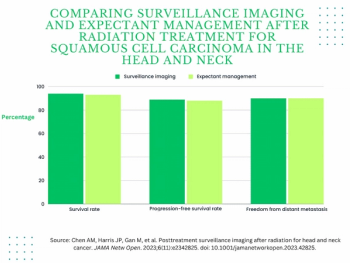
For patients who had a complete metabolic response to radiation treatment for head and neck cancer, the authors of a recent study found that surveillance imaging with PET/CT, MRI or CT did not improve outcomes in comparison to expectant management.

For patients who had a complete metabolic response to radiation treatment for head and neck cancer, the authors of a recent study found that surveillance imaging with PET/CT, MRI or CT did not improve outcomes in comparison to expectant management.

Is it time to reassess what constitutes a never event?
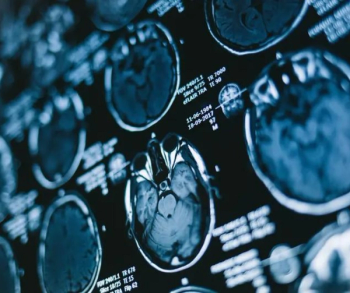
Noting that initial imaging sensitivity is a key factor in cost-effectiveness for patients who do not require acute treatment for dizziness, researchers found that specialized MRI (including multiplanar high-resolution DWI) provided the most benefit in a comparative trial of neuroimaging modalities.
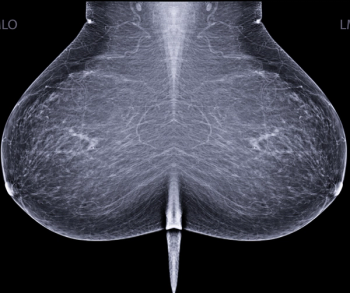
Mammography-based artificial intelligence (AI) models demonstrated an 11 percent higher median AUC for predicting breast cancer than traditional clinical risk factors, according to a new systematic review of 16 retrospective studies.
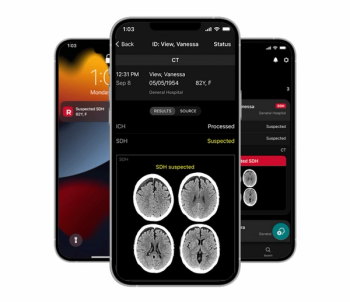
The Rapid SDH module on the RapidAI platform reportedly offers a sensitivity rate of 93 percent for detection of hemispheric subdural hematoma on non-contrast computed tomography (CT) scans.
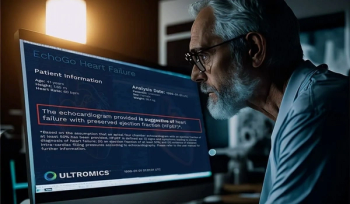
Reimbursement for use of the artificial intelligence (AI)-powered EchoGo Heart Failure platform in hospital outpatient settings for Medicare and Medicaid patients is expected to increase from $99.81 to $284.88 in 2024.
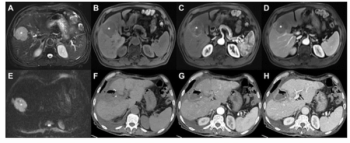
Emphasizing factors such as tumor size, serum neutrophil count and arterial phase hyperenhancement proportion on MRI, a new diagnostic model outperformed eight staging systems for predicting advanced recurrence of hepatocellular carcinoma after liver resection.
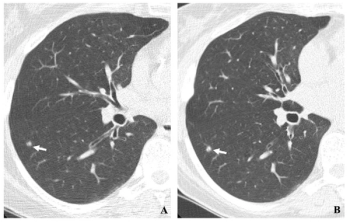
Assessing 20-year follow-up data from a cohort for an international study of annual low-dose CT screening for lung cancer, researchers noted an 81 percent survival rate after an initial primary lung cancer diagnosis for over 1,200 patients with a median 43 pack-year smoking history.
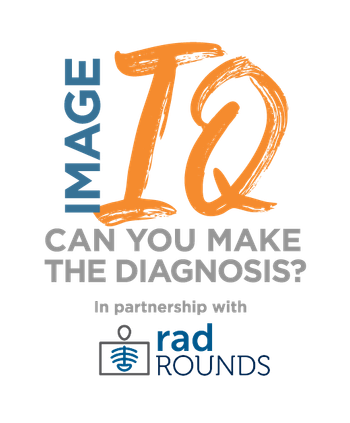
A 45-year-old basketball player presents with an acute injury in the emergency room. What is the most likely diagnosis for the shoulder injury depicted in the image?

Ultrasound and MRI findings from a new study suggest that greater carotid atherosclerosis and elevated white matter hyperintensities among women with the APOEe4 genotype, a strong risk factor for Alzheimer’s disease, are associated with increased PTSD symptoms in midlife women.
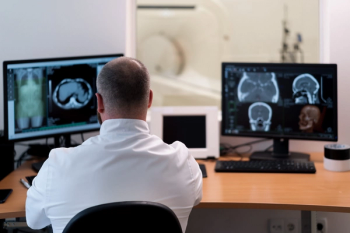
The ability to consider and comment on prior imaging in the radiology report may help reduce extraneous addenda requests.

Catch up on the top radiology content of the past week.
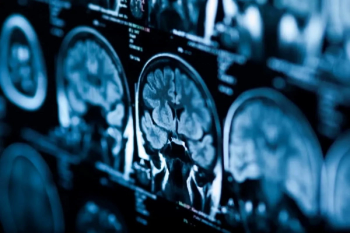
In their review of functional MRI data from over 5,200 study participants, researchers noted that higher amygdala reactivity and lower prefrontal cortical reactivity were associated with adversity exposure, findings that may contribute to exaggerated threat detection and reduced emotional control.
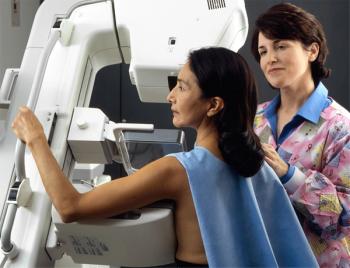
Incorporating text messaging into your mammography screening program may facilitate improved mammography screening rates in your patient population as well as enhanced practice management efficiencies.
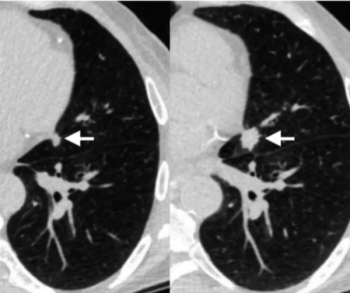
In a newly updated guidance, the American Cancer Society recommends the expansion of annual lung cancer screening with low-dose computed tomography (LDCT) for current or previous smokers 50 to 80 years of age who have a 20-pack-year or greater history of smoking.
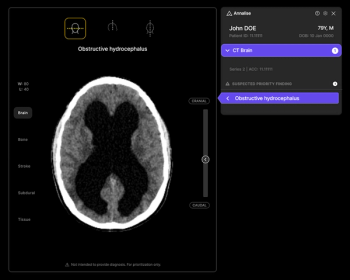
Featuring 12 prior FDA clearances for chest X-ray and non-contrast head CT, the Annalise Triage platform may help streamline radiology workflows and prioritize timely diagnosis of urgent conditions.
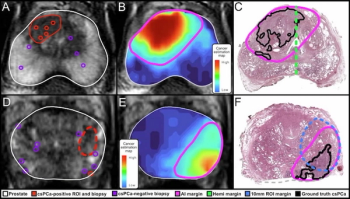
The Current Procedural Terminology (CPT) Category III code for the Unfold AI prostate cancer mapping platform can be utilized by radiologists starting in July 2024.

In a recent video interview series, Dushyant Sahani, M.D., discussed the critical role of contrast media in diagnostic imaging, lessons learned from the contrast media shortage, key considerations with generic agents and currently unmet needs with contrast agents.

The executive order seeks to promote continued innovation and growth with artificial intelligence (AI) while ensuring monitoring of AI models for safety, privacy, and equity.

Review the case study and test your knowledge to make the correct diagnosis.
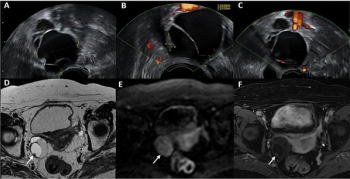
New research shows that pelvic MRI offers equivalent sensitivity but nearly 20 percent greater specificity than transvaginal ultrasound for the classification of adnexal lesions.
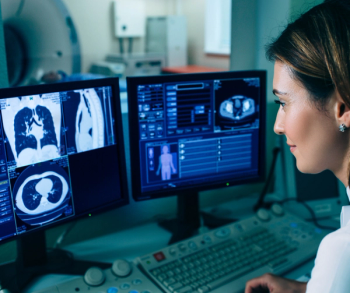
Could adjustments to quality assurance review facilitate improved teamwork between radiologists and referring clinicians?

Catch up on the top radiology content of the past week.
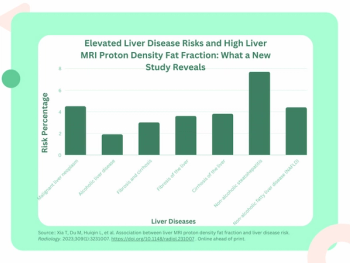
In a study of over 375,000 people, researchers found that a high liver MRI proton density fat fraction was associated with an over 7.5-fold higher risk for non-alcoholic steatohepatitis, a 4.5-fold higher risk for malignancy, and a 3.8-fold elevated risk for cirrhosis of the liver.
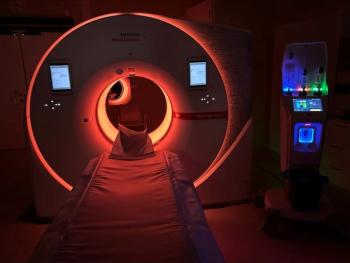
Photon-counting computed tomography (PCCT) offers a number of salient advantages over conventional CT, including improved image resolution and contrast-to-noise ratio, enhanced denoising capability and inherent spectral sensitivity.

Catch up on the top AI-related news and research in radiology over the past month.
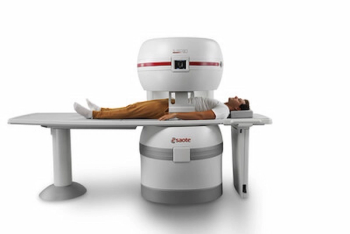
The update of the S-scan magnetic resonance imaging (MRI) system reportedly offers an improved ergonomic design, algorithms to enhance image quality and reduced scan times.
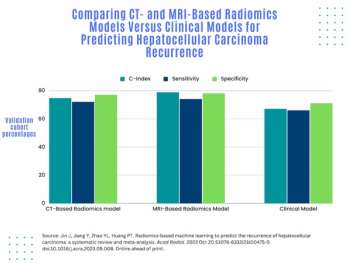
A 49-study meta-analysis revealed that MRI-based and CT-based radiomics models outperformed clinical models for predicting recurrence of hepatocellular carcinoma.
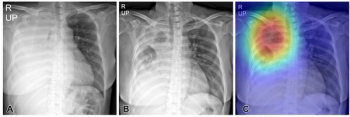
An emerging deep learning algorithm can reportedly triage 40 percent of no-change X-rays while providing 88 to 90 percent accuracy for detecting changes with X-rays obtained in the emergency department and intensive care unit at a tertiary referral hospital, according to recently published research.

Review the case study and test your knowledge to make the correct diagnosis.